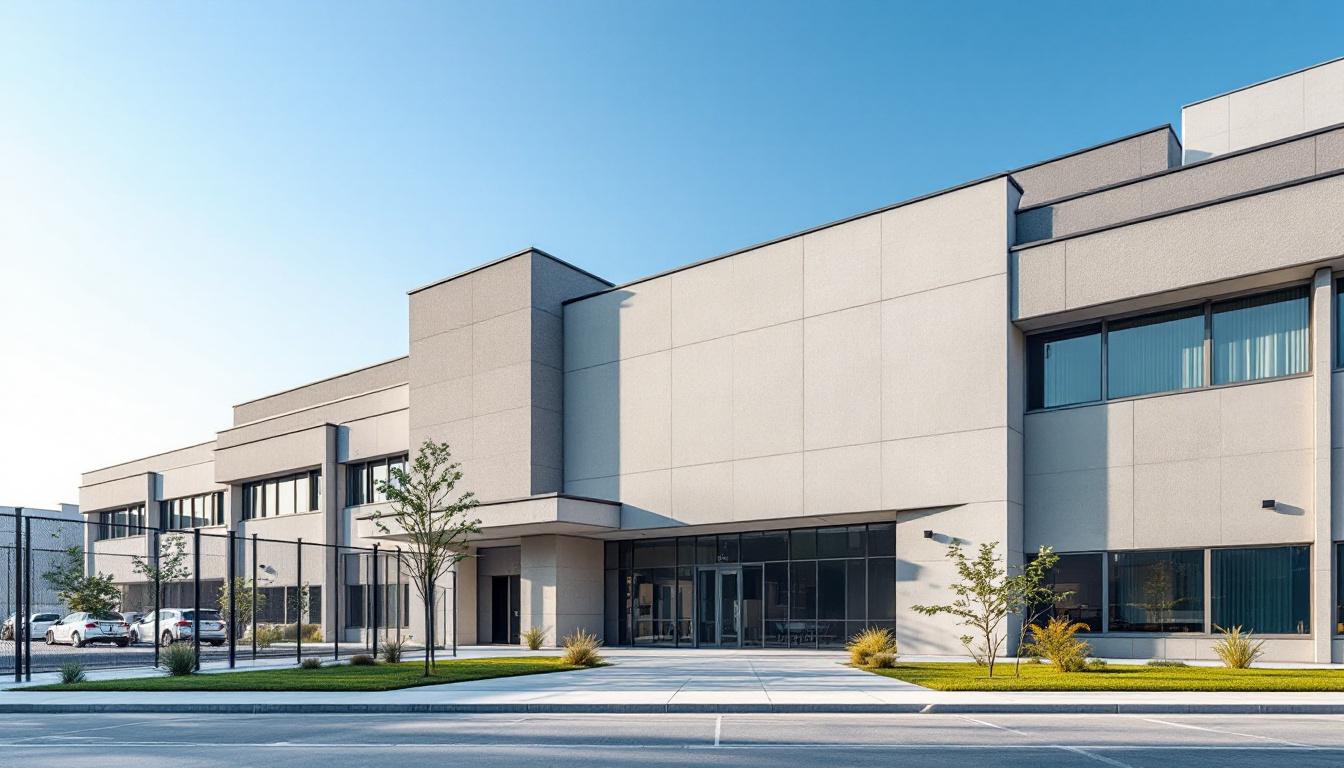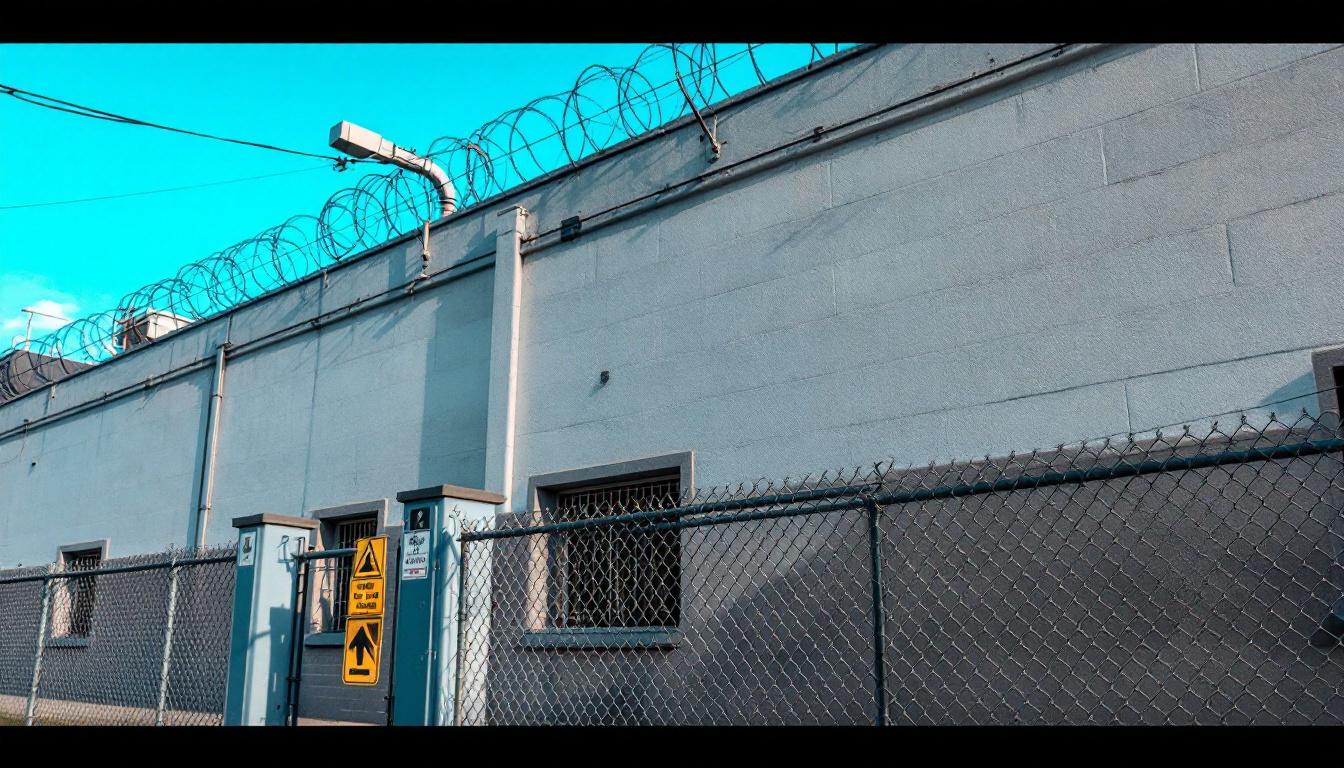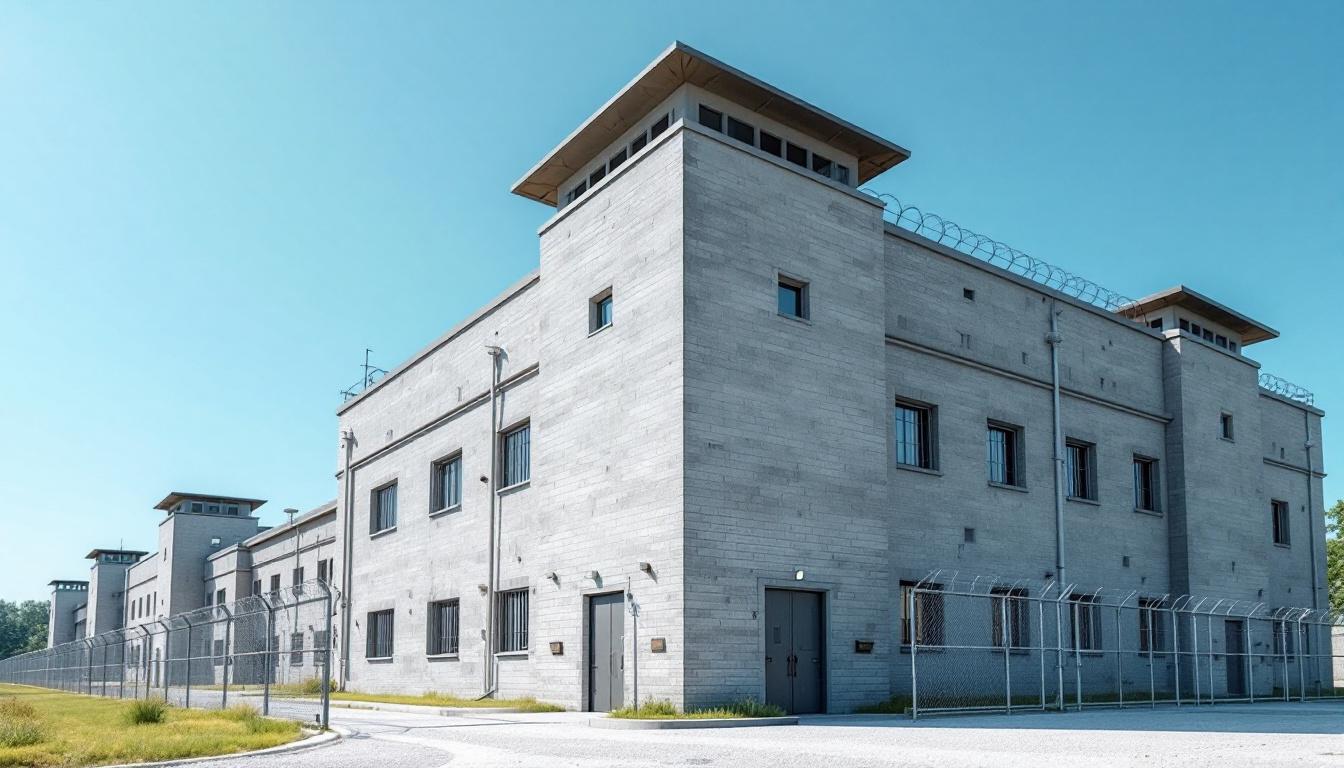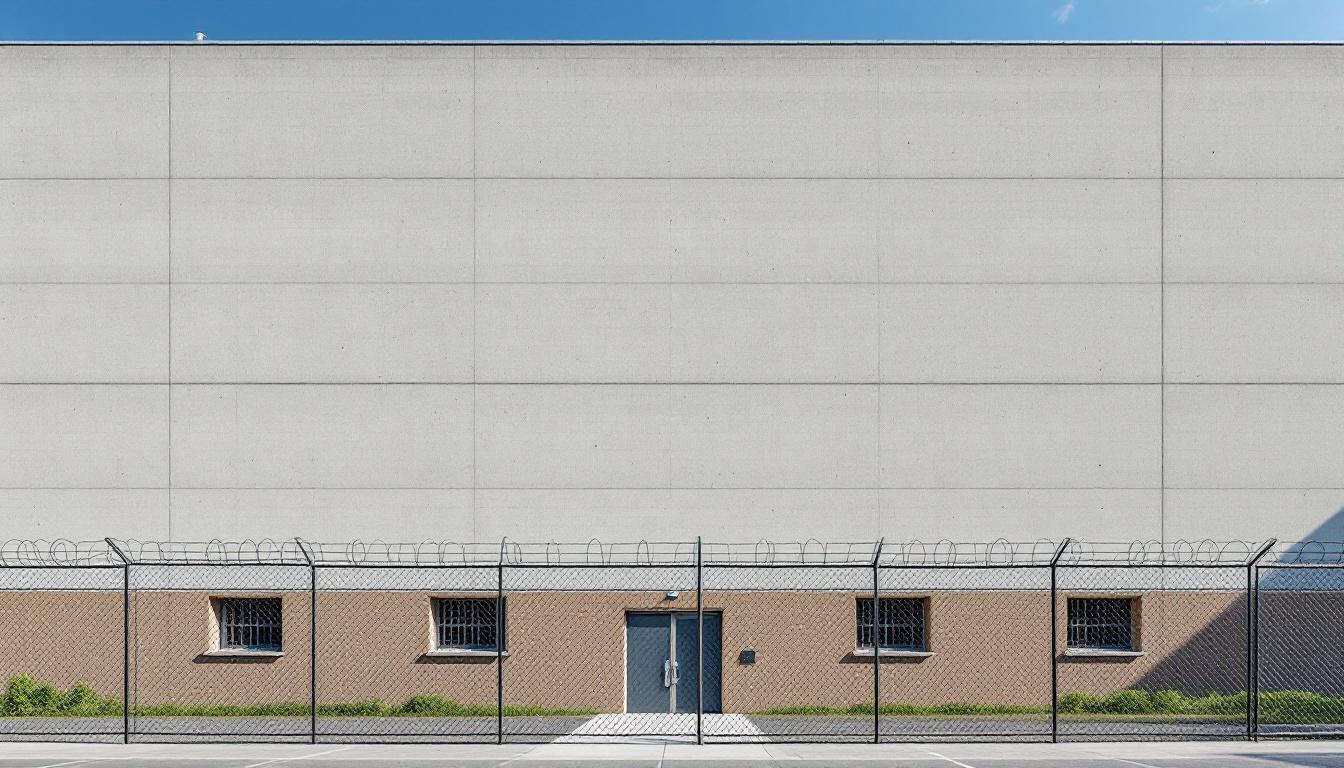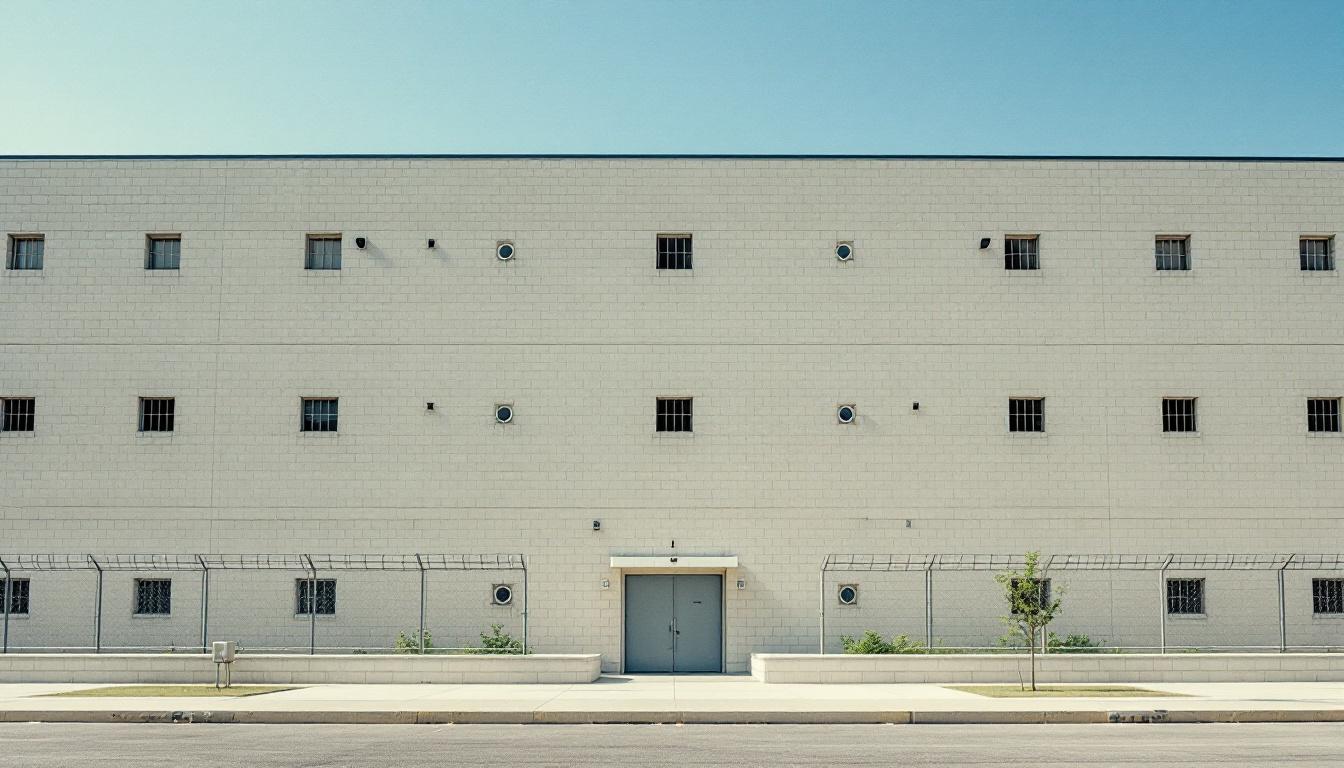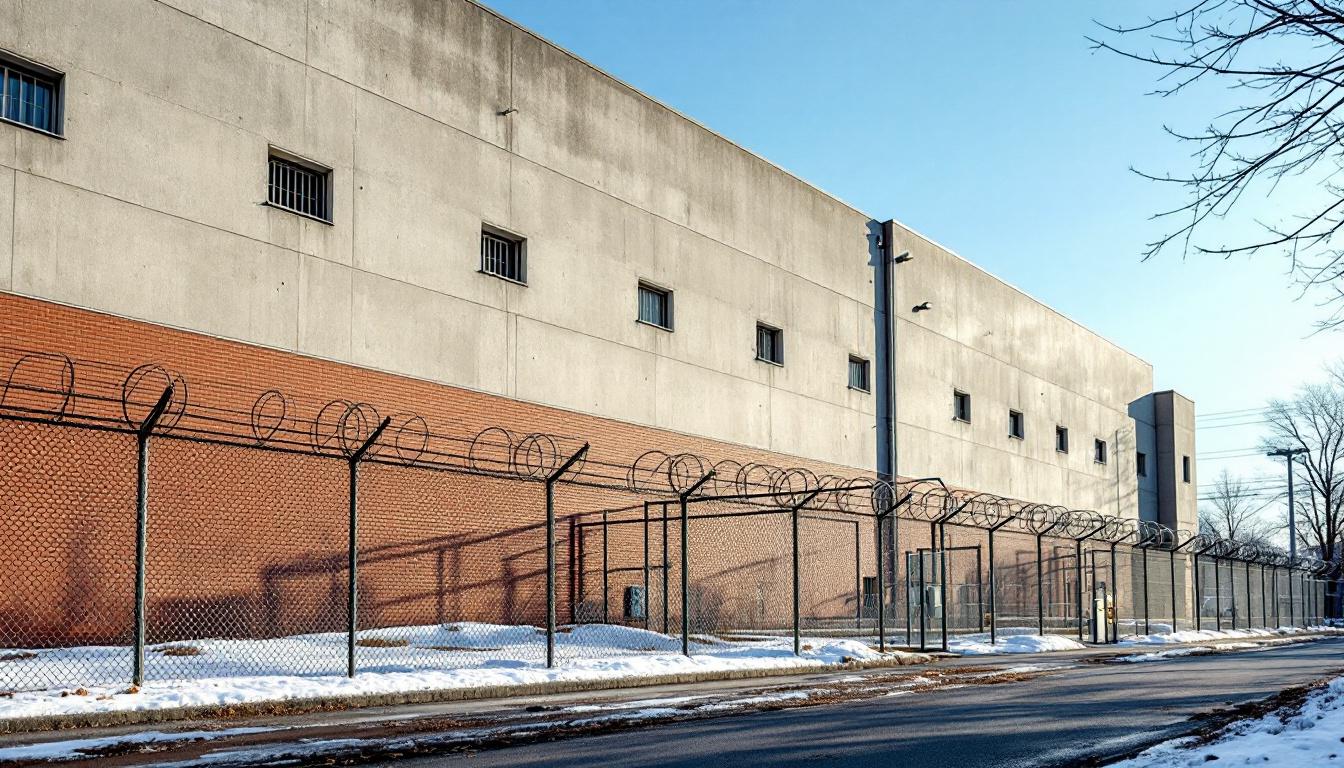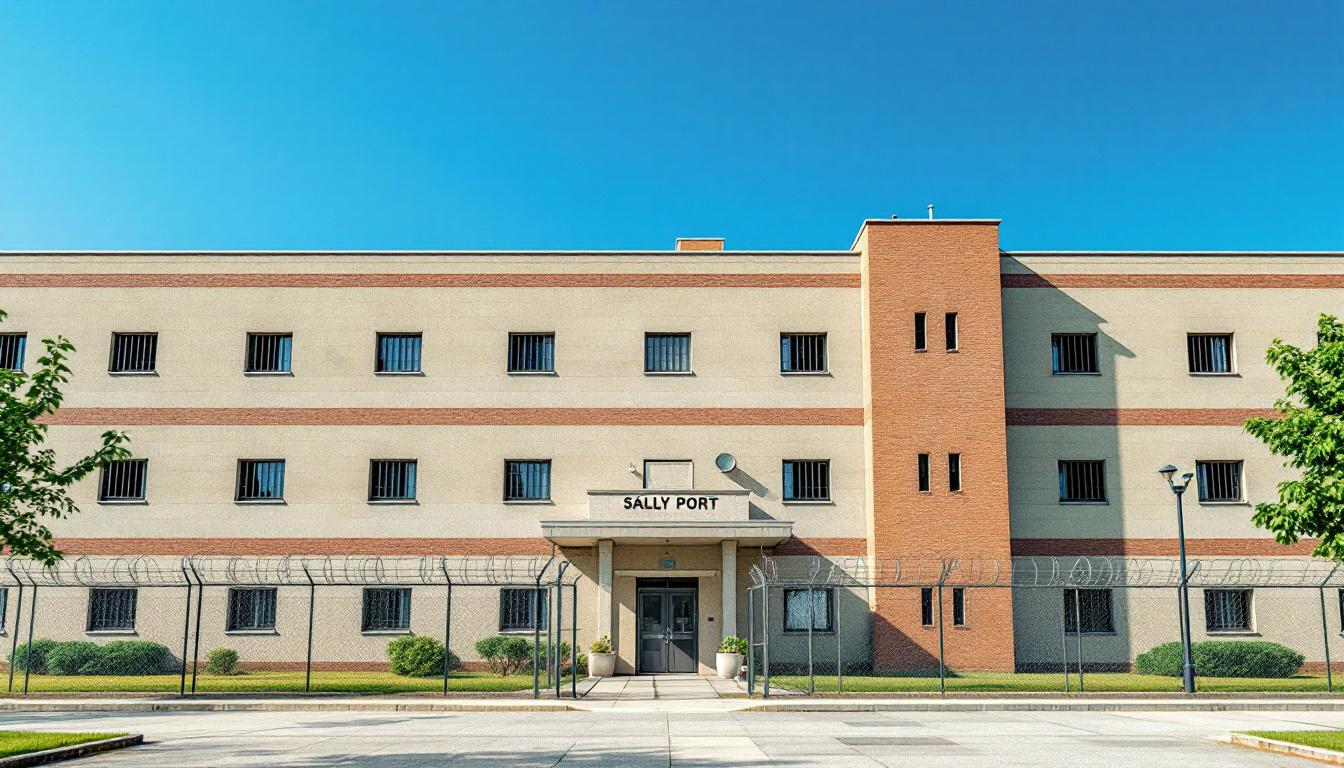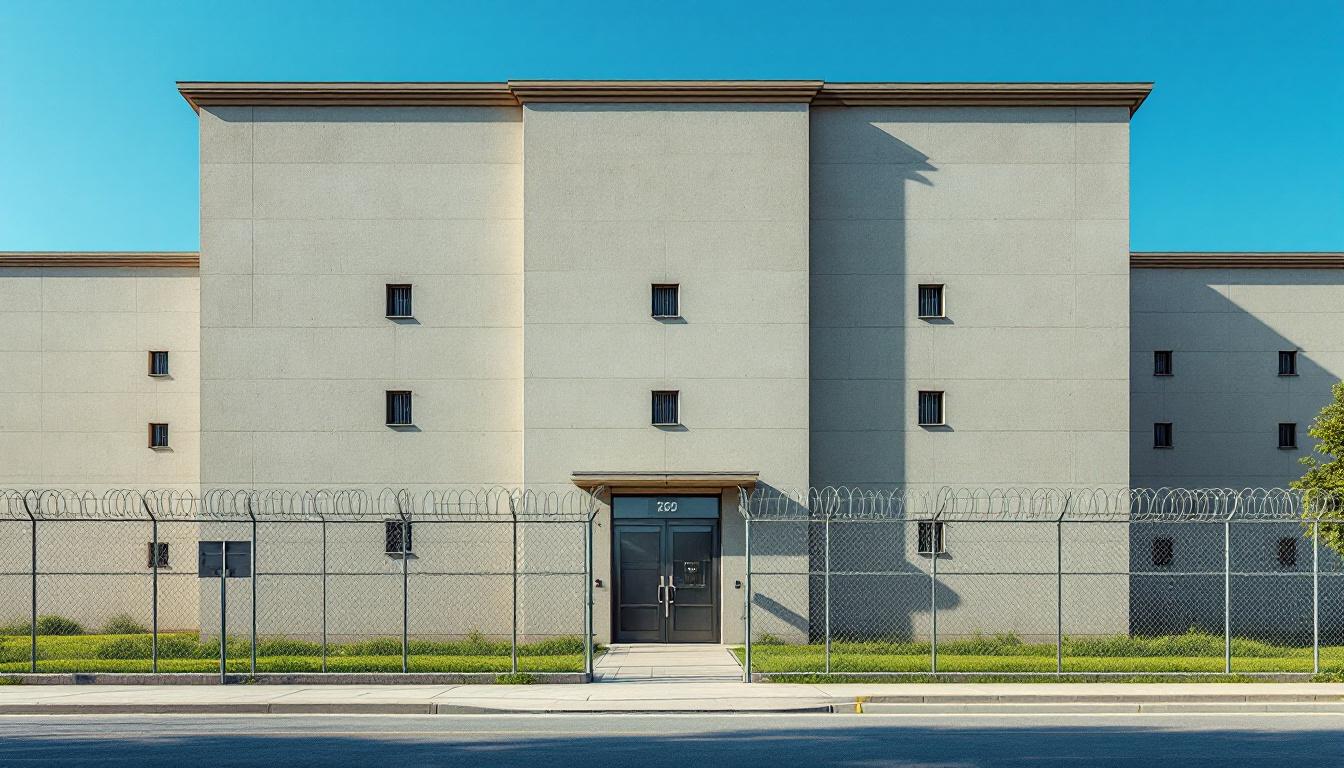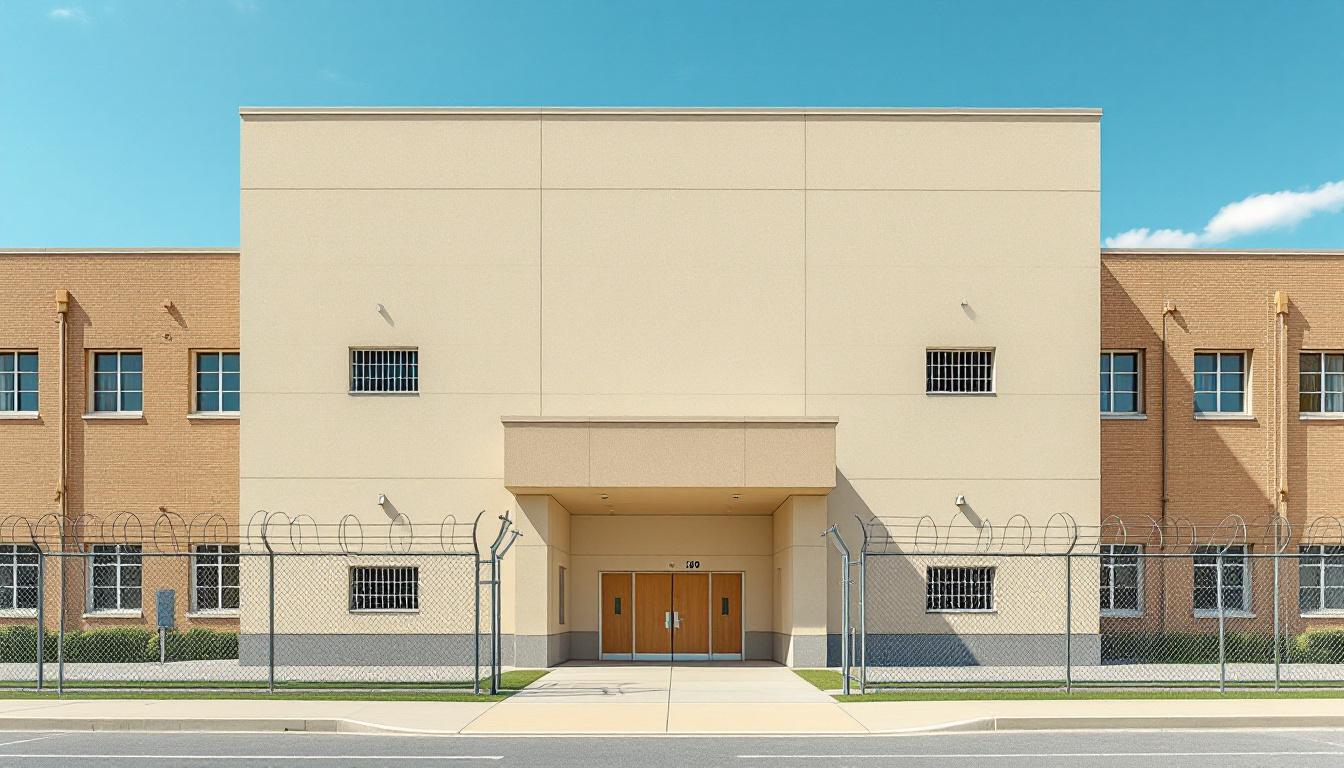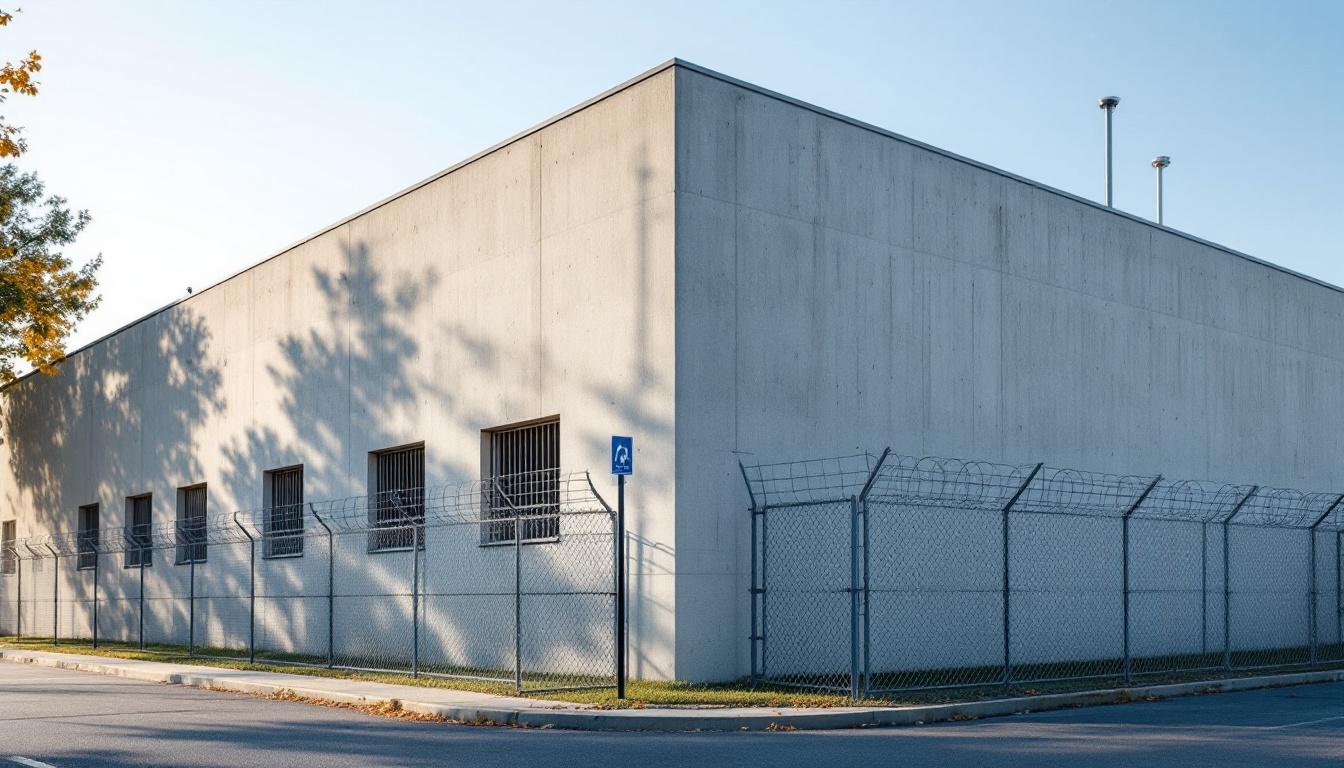
Quick Navigation
How to contact an inmate at Alexandria Detention Center
This comprehensive guide will walk you through how to connect with an inmate at Alexandria Detention Center. Follow the steps below to find an inmate and send letters and photos:
- Search for the inmate using our search tool below
- Create your account or log in to Penmate
- Write your message (up to 6,000 characters)
- Send instantly - inmates receive printed copies daily
Find an Inmate
Search for an inmate to start communicating today
Tip: You can search by first name, last name, or inmate ID number
To contact a person at Alexandria Detention Center start by searching for the person on the official facility website. Perform a search by following these steps:
- Step 1: Enter their first name and last name into the search form and click "Search"
- Step 2: Locate their inmate record
- Step 3: Write down their Inmate ID and any housing information provided
Important! Be sure to enter the person's full name. Nicknames should not be used.
How to Send Messages to Inmates

You can use your phone or computer to send emails, letters, and photos to an inmate. Messages are sent electronically to inmate tablets or kiosks at the facility. If you would like to send a message, start by searching for an inmate at Alexandria Detention Center.
Sending Photos and Postcards

A great way to send love and support to a loved one at Alexandria Detention Center is to send photos and postcards. It only takes a few minutes to send photos from your phone and it makes a huge difference. You can also mail postcards with words of support and inspiration, or design your own postcard for special moments like birthdays and holidays.
Important! Be sure not to send any explicit photos or they may not be approved by the facility. You can also use a photo printing app like Penmate to make sure your photos are printed at the correct size (4x6 or 3x5) and are mailed according to the rules and regulations of Alexandria Detention Center.
Frequently asked questions about Alexandria Detention Center
-
How long does it take to deliver a message?
If you're sending an email message your letter is usually delivered within 24-48 hours. For messages sent via mail you should expect delivery within 3-7 days. All messages will need be approved by Alexandria Detention Center.
-
How much does it cost to send a message to Alexandria Detention Center?
You can send a message free using your phone or mail a message via USPS for the price of a $0.60 stamp and envelope. You can also purchase credits or e-stamps from services starting at $1.99.
-
What services can I use to contact an inmate at Alexandria Detention Center?
Penmate
You can use Penmate to send letters and photos to an inmate from your phone. It's an easy way to stay in touch during your loved one's incarceration. Use the inmate locator to find an inmate's location and contact information, then you can send messages within a few minutes.
Securus messaging
Securus may be another option for communicating with an inmate at Alexandria Detention Center. You can create a friends and family account and purchase credits to send messages. All messages will be reviewed and must be approved by the facility.
JPay
Some county jails and state prisons may support sending messages with JPay. You must register an account with the system, find your loved one, and purchase stamps to send messages. For some locations you can also attach photos.
Smart Jail Mail
You may also check if Smart Jail Mail is available at Alexandria Detention Center. Smart Jail Mail is operated by Smart Communications and has contracted with some state and county jails. After purchasing credits, your messages and photos are sent to the facility, printed out, and then handed out to your loved one.
-
What is the mailing address of Alexandria Detention Center?
Mailing address:
Alexandria Detention Center
2001 Mill Rd
Alexandria, VA 22314
Phone: (703) 746-4099Business hours:
- Monday: Open 24 hours
- Tuesday: Open 24 hours
- Wednesday: Open 24 hours
- Thursday: Open 24 hours
- Friday: Open 24 hours
- Saturday: Open 24 hours
- Sunday: Open 24 hours
-
What are the visiting hours at Alexandria Detention Center?
Visiting hours at Alexandria Detention Center vary by housing unit and security level. Generally, visits are scheduled on weekends and holidays, with some facilities offering weekday visits. Contact the facility directly at (703) 746-4099 or check their website for the current visiting schedule. Visits typically last 30-60 minutes and must be scheduled in advance.
-
What items are prohibited when sending mail to Alexandria Detention Center?
Prohibited items typically include: cash, personal checks, stamps, stickers, glitter, glue, tape, staples, paperclips, polaroid photos, musical or blank greeting cards, hardcover books, magazines with staples, and any items containing metal or electronics. Only send letters on plain white paper with blue or black ink. Photos must be printed on regular photo paper (no Polaroids). Always check with Alexandria Detention Center for their specific mail policies.
-
How do I send money to an inmate at Alexandria Detention Center?
You can send money to an inmate at Alexandria Detention Center through several methods: 1) Online using JPay, Access Corrections, or the facility's approved vendor, 2) Money orders mailed directly to the facility with the inmate's name and ID number, 3) Kiosks located in the facility lobby, or 4) Over the phone using a credit or debit card. Fees vary by method, typically ranging from $2.95 to $11.95 per transaction.
-
Can I schedule a video visit with an inmate at Alexandria Detention Center?
Many facilities now offer video visitation as an alternative to in-person visits. At Alexandria Detention Center, video visits may be available through services like Penmate, Securus Video Connect, GTL, or ICSolutions. Video visits typically cost $10-20 for 20-30 minutes and must be scheduled in advance. You'll need a computer or smartphone with a camera and reliable internet connection. Contact the facility for their specific video visitation policies and approved vendors.
-
What identification do I need to visit an inmate at Alexandria Detention Center?
All visitors must present valid government-issued photo identification such as a driver's license, state ID, passport, or military ID. Minors must be accompanied by a parent or legal guardian who can provide the minor's birth certificate. Some facilities require visitors to be on the inmate's approved visitation list, which may require a background check. Contact Alexandria Detention Center for specific ID requirements and visitor approval procedures.
-
How can I find out an inmate's release date?
To find an inmate's release date at Alexandria Detention Center, you can: 1) Use the online inmate search tool if available, 2) Call the facility's records department, 3) Contact the inmate's case manager or counselor, or 4) Have the inmate provide this information during a call or visit. For privacy reasons, some facilities only release this information to immediate family members.
Facility Overview
Contact Information
Alexandria Detention Center2001 Mill Rd
Alexandria, VA 22314
Phone: (703) 746-4099
Official Website
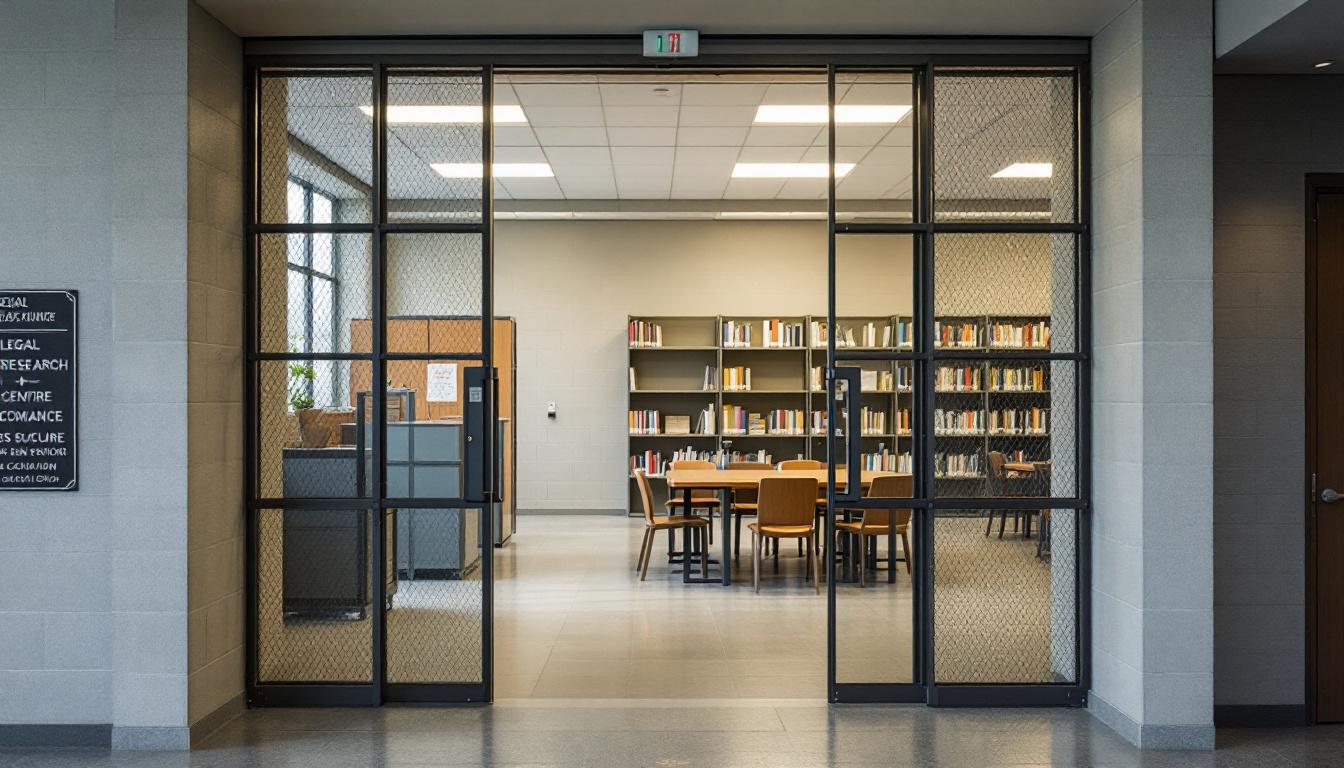
About Alexandria Detention Center
The Detention Center Bureau at the William G. Truesdale Adult Detention Center manages comprehensive security operations and facility support services for approximately 300 inmates, including local, state, and federal prisoners. Situated in Alexandria, Virginia, the facility operates through three specialized divisions: Security Division A, Security Division B, and the Support Services Division, each designed to maintain safety for inmates, staff, and visitors throughout the complex.
Security operations are structured around direct supervision principles, with detention deputies placed directly within housing units to effectively monitor and control the living environment. The facility's organizational approach includes specialized teams such as Team 1A, Team 2A, Team 1B, Team 2B, and the Special Management Section, with each security team overseen by a Lieutenant who serves as Watch Commander for their respective shift. Division A typically serves as the liaison to medical contractors, while Division B coordinates with mental health service providers, ensuring comprehensive care coordination for the inmate population.
The detention center serves the Alexandria community through its systematic approach to inmate supervision, from initial booking through release. Deputies are responsible for ensuring safe and secure movement of inmates throughout the facility, maintaining order in housing areas, and supporting the overall mission of public safety. The facility's direct supervision model allows staff to better assess unit atmosphere and respond appropriately to various situations that may arise during daily operations.
Programs & Services
The William G. Truesdale Adult Detention Center operates with a comprehensive security structure designed to support both safety and rehabilitation for its approximately 300 inmates. Through partnerships with medical and mental health contractors, the facility provides essential healthcare services that address both physical and psychological needs of individuals in custody. The detention center's direct supervision model places deputies within housing units, creating an environment that may facilitate better communication between staff and inmates while supporting program participation and behavioral management.
Educational and vocational programming at the facility typically includes basic literacy courses, GED preparation, and job readiness training designed to prepare individuals for successful reentry into the community. The center may offer substance abuse counseling programs, anger management classes, and life skills workshops that address common factors contributing to criminal behavior. Religious services and chaplaincy programs are often available to provide spiritual support and guidance during incarceration.
Support services at Truesdale Adult Detention Center likely encompass visitation programs that help maintain family connections, library access for legal research and educational materials, and reentry planning assistance. The facility may coordinate with local organizations to provide transitional housing information, employment resources, and community-based support services. Mental health programming, facilitated through the facility's mental health contractor, typically includes individual counseling, group therapy sessions, and crisis intervention services to address the significant mental health needs present in the detention population.
Daily Life & Visitation
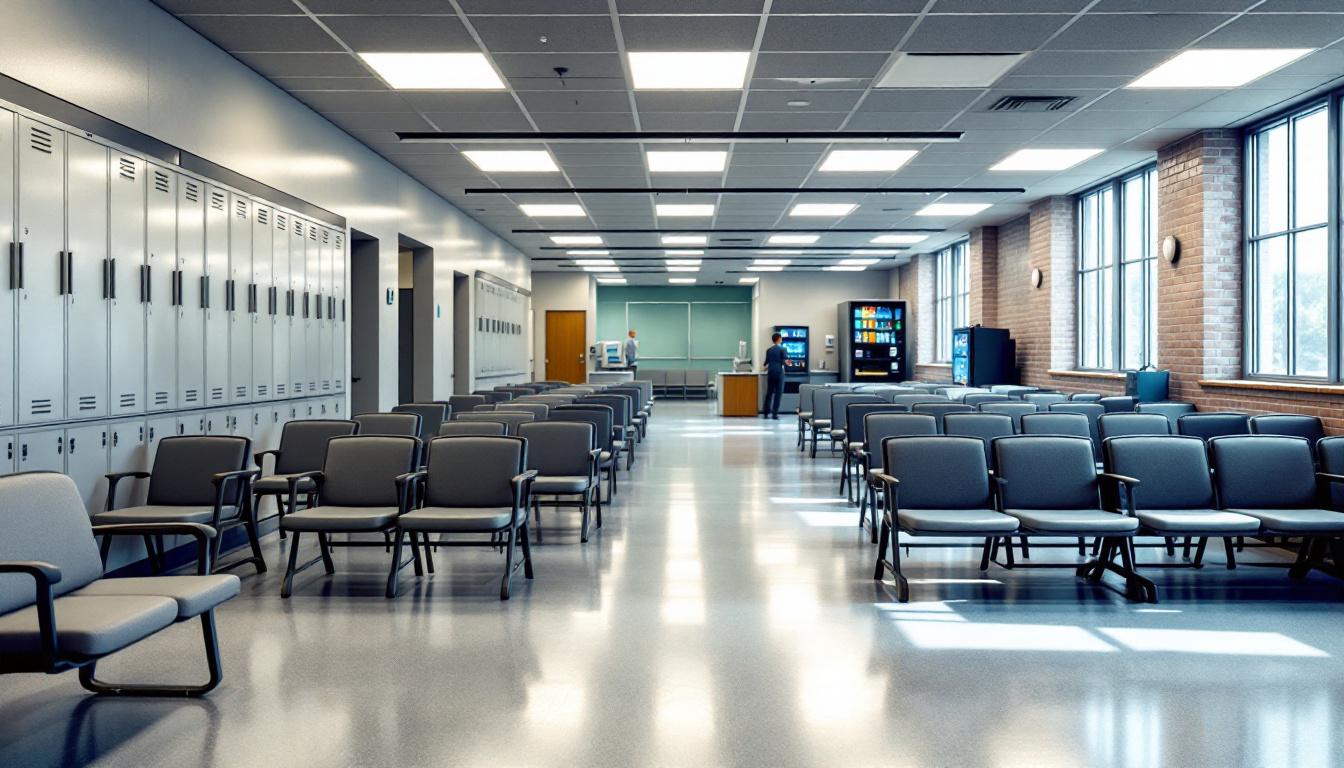
The William G. Truesdale Adult Detention Center operates under a structured security framework where deputies maintain direct supervision within housing units, allowing staff to closely monitor the living environment and atmosphere throughout the facility. This approach to inmate supervision typically creates a more controlled daily routine, as the approximately 300 residents—including local, state, and federal prisoners—navigate their schedules under the watchful eye of security teams organized into divisions that operate around the clock.
Within the facility's housing areas, inmates generally follow established daily schedules that may include designated times for meals, recreation, educational programming, and work assignments. The direct supervision model employed at Truesdale often allows for more individualized attention to inmates' needs, as deputies stationed within the larger housing units can better assess situations and respond appropriately. Medical and mental health services are coordinated through contractor liaisons, ensuring that healthcare needs are addressed as part of the daily routine. Inmates typically have access to commissary services, library resources, and may participate in various programs designed to support rehabilitation and maintain connections with the community.
Families and friends of inmates can often maintain contact through scheduled visitation programs and communication systems, though specific policies may vary based on security classifications and facility protocols. The facility's emphasis on safety for inmates, staff, and visitors extends to all daily operations, from the initial booking process through release. Support services within the detention center typically encompass various aspects of daily life, ensuring that basic needs are met while maintaining the security standards necessary for housing individuals from multiple jurisdictions within the Virginia correctional system.
Ready to Connect?
Start communicating with your loved one today
Search for an Inmate
